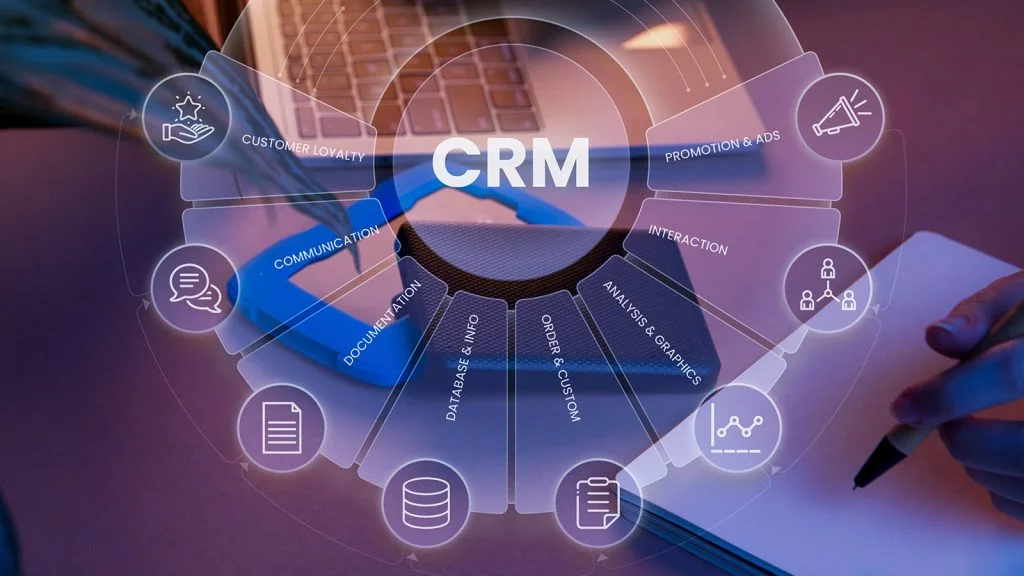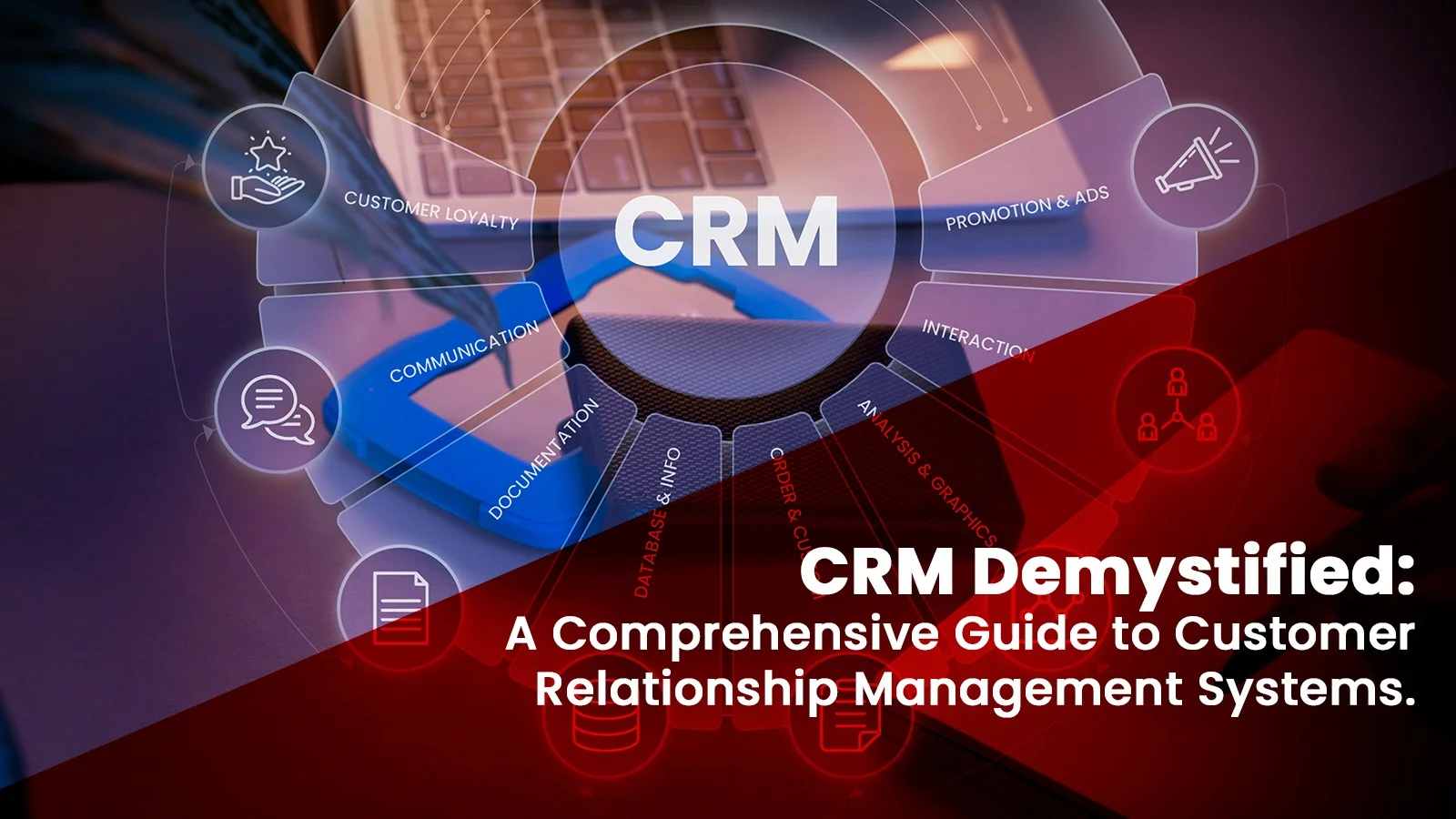Introduction
Establishing and maintaining strong customer relationships is crucial for success, regardless of the industry. With Customer Relationship Management (CRM) Systems, this is simple. Whether you are a small start-up or a multi-national company, leveraging a CRM software system offers numerous benefits to take your customer relationships to new heights.
Definition of CRM
Customer Relationship Management System helps organisations track and nurture relationships. A CRM system has a centralised database with information about customers, leads, sales, marketing and interactions, which gives a 360-degree view of the different operations. The primary goal of a CRM system is to enhance customer experience, streamline business processes, and boost sales and customer retention.
Need for a CRM System
A CRM system tracks customer behaviour and interactions and allows the marketing team to create personalised content and targeted services, leading to better customer satisfaction.
Automating manual tasks such as lead nurturing process, messaging, customer support and data entry increases efficiency and enables employees to focus on strengthening customer relationships.
Data-driven decision-making becomes possible with real-time reporting and analytics, which helps to identify new sales opportunities and optimise marketing strategies.
Key Features of a CRM System
Contact management is the primary function of CRM software. The software automatically updates customer information and interactions, eliminating the need for manual effort.
An all-in-one CRM software includes features such as sales and marketing automation and invoicing. Sales automation streamlines and automates sales processes from lead generation to deal closure.
Marketing automation enables automated marketing campaigns such as email marketing, social media marketing and lead generation. Through such automation, you can plan strategies and send personalised content.
Customer service and support features are also integral to CRM systems. These features include ticket management, customer service analytics, and self-service portals. By providing excellent customer service and support, businesses can enhance customer satisfaction, build loyalty, and drive customer retention.

Types of CRM Systems
Organisations can choose between two CRM system types – on-premise or cloud.
On-premise
With an on-premise CRM system, installation and hosting of the system take place on the company’s servers and infrastructure. This means the company manages the data, maintenance, updates and customisation capabilities. Typically, larger organisations choose on-premise CRM systems due to their complex infrastructure and specific security and compliance requirements. On-premise CRM systems require a significant upfront investment in hardware, software licenses, and IT infrastructure. They also require ongoing maintenance and support, which can be resource-intensive.
Cloud-based
With cloud-based, hosting and management are taken care of by the CRM provider and accessed via the Internet. These systems offer businesses flexibility, scalability, and cost-effectiveness. With cloud-based CRM systems, businesses can access their CRM data and tools from anywhere, at any time. Cloud-based CRM systems eliminate the need for businesses to invest in hardware and IT infrastructure, as the provider takes care of the hosting and maintenance.
Choosing between an on-premise or a cloud-based CRM system depends on the organisation’s size, budget, security requirements, and IT capabilities. Businesses should evaluate their needs and objectives, conduct research and ultimately decide on a CRM system that suits their business.
Choosing the right CRM system
Selecting the right CRM system for your business is a crucial aspect as it can impact your customer relationships, sales processes, and overall business performance. With numerous CRM systems available, it is important to consider several factors before deciding.
- Outline specific objectives and needs. Start by planning your company’s requirements, this will help you narrow down your options.
- Consider scalability and flexibility. Your CRM must be able to accommodate and adapt to your changing needs.
- Enquire about integration capabilities. The CRM system should be able to integrate with any existing and third-party systems.
- Cost is another important factor. Consider not only the upfront costs but also the ongoing maintenance, support, and training expenses.
- Usability and user experience are often overlooked but essential factors to consider. A CRM system should be intuitive, user-friendly, and easy to navigate for all users.
- Look into customer reviews, testimonials, and case studies of the CRM system provider. It’s important to choose a reliable and reputable CRM system provider that offers excellent support and ongoing updates.
Implementing a CRM system – Best practices and considerations
- Ensure a smooth transition by migrating existing customer data into the new CRM system. Integrate the CRM with other essential tools and software used in your organisation.
- Properly train your employees on using the CRM system effectively to maximise its potential and adoption within the organisation.
- Ensure that the CRM system provider follows industry-standard security practices and complies with data protection regulations.
- Conduct thorough testing to ensure that all functionalities and integrations are working as expected.
- Regularly review and analyze CRM data to identify areas for improvement, track key performance indicators, and measure the impact of the CRM system on business outcomes.
Tips for Maximizing CRM Effectiveness
- Regularly update customer data to ensure accuracy and relevance, which will lead to better decision-making and personalised customer experiences.
- Motivate your employees to actively use the CRM system by demonstrating its benefits and providing ongoing support and training.
- Continuously monitor key performance indicators (KPIs) to assess the CRM system’s impact and identify areas for improvement.
- Incorporate customer feedback into the CRM system to enhance products, services, and overall customer satisfaction.
Conclusion
As businesses evolve and grow, a CRM system is not a choice but a necessity. A CRM system plays a vital role in fostering meaningful customer relationships, streamlining operations, and driving organisational growth. In today’s dynamic and competitive world, a well-implemented CRM system creates lasting customer satisfaction and sustainable business success.
Therefore, if a CRM system is not in your business plans, it is time to re-evaluate and start planning. Let your CRM system take your business to greater heights. Good luck!








